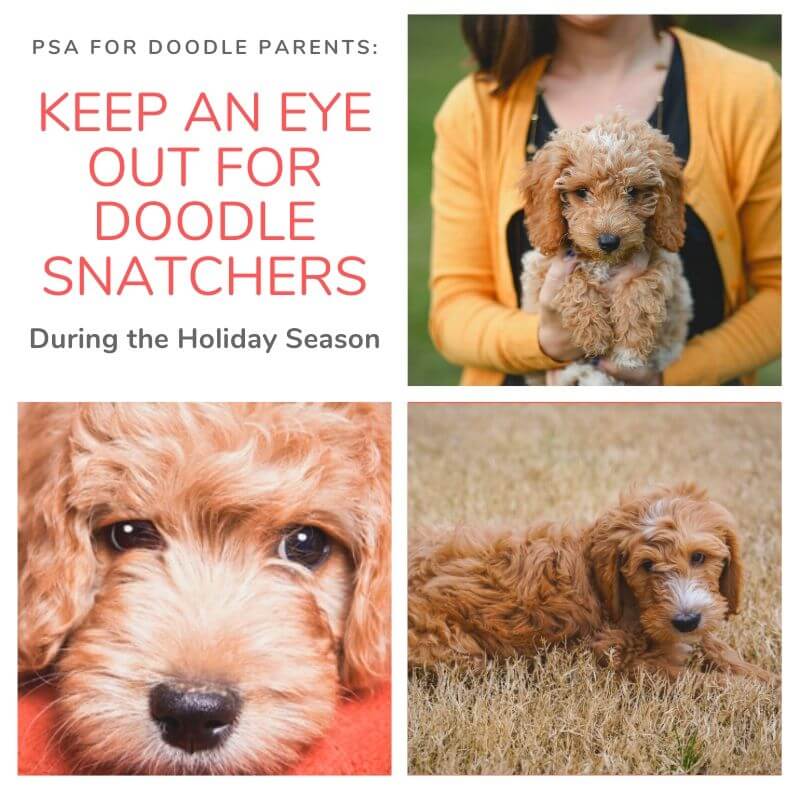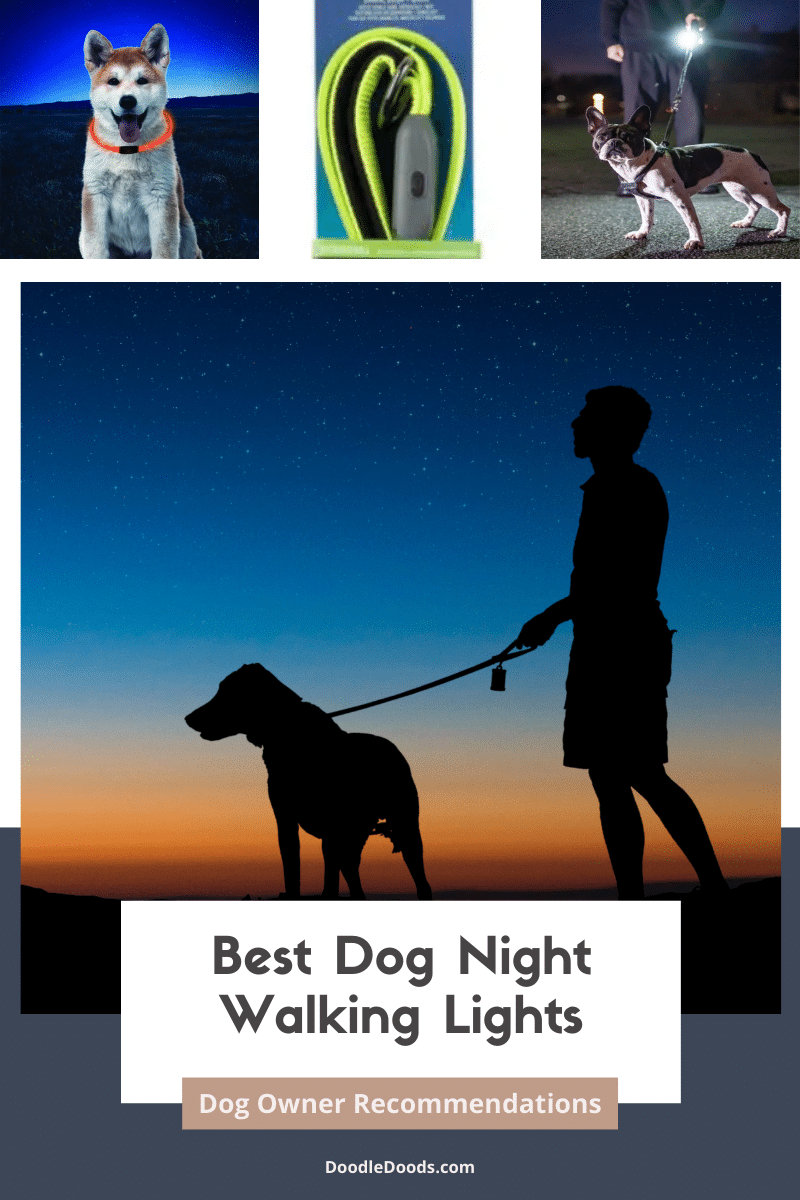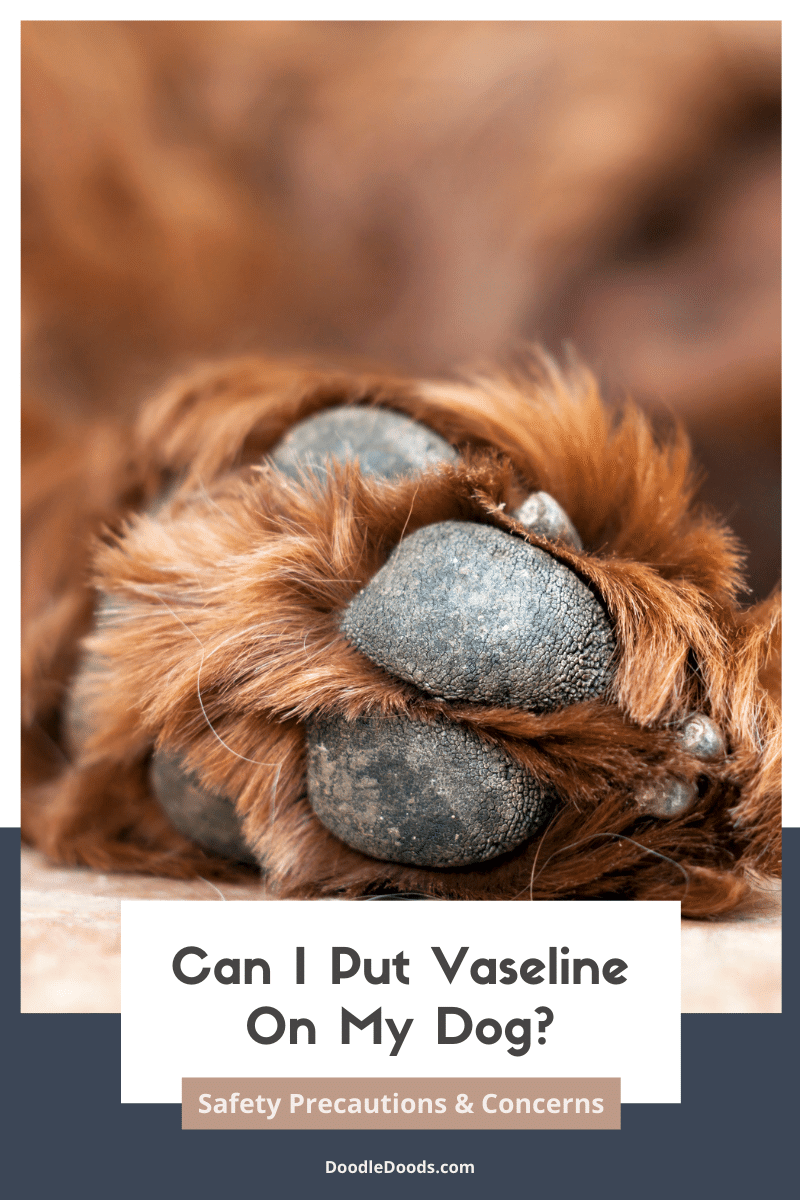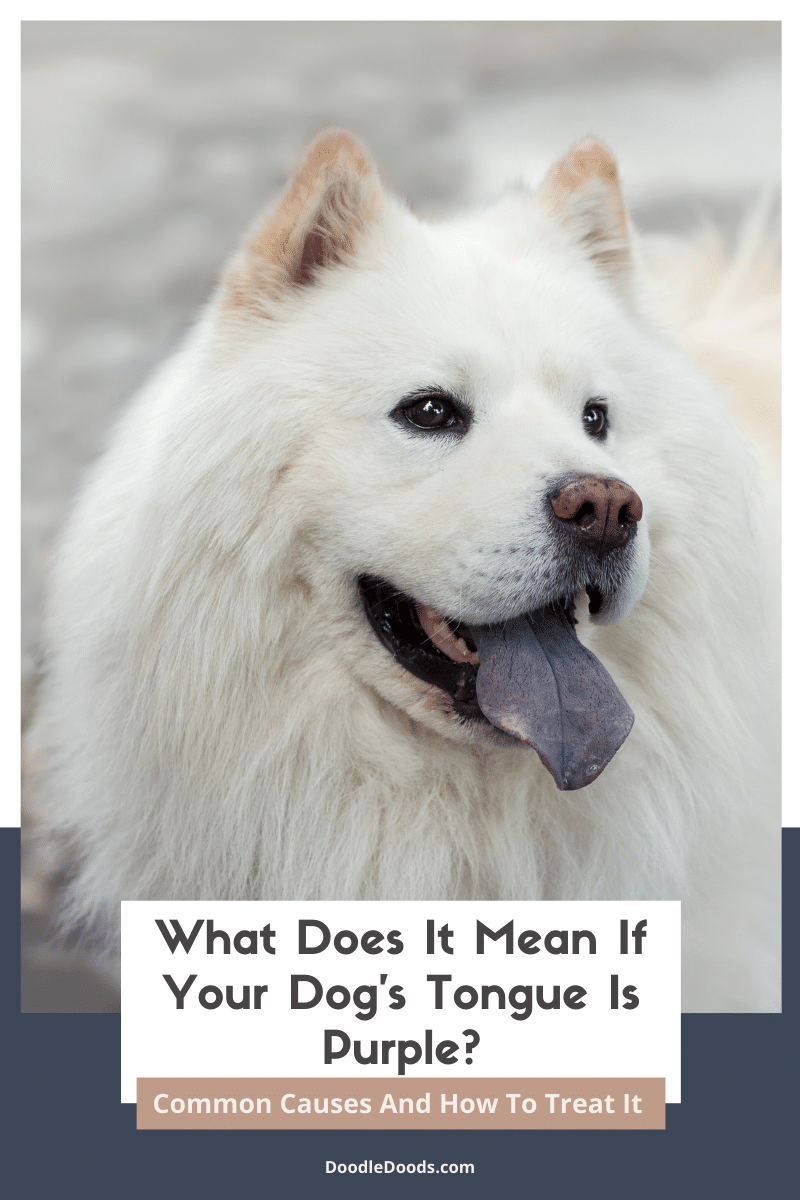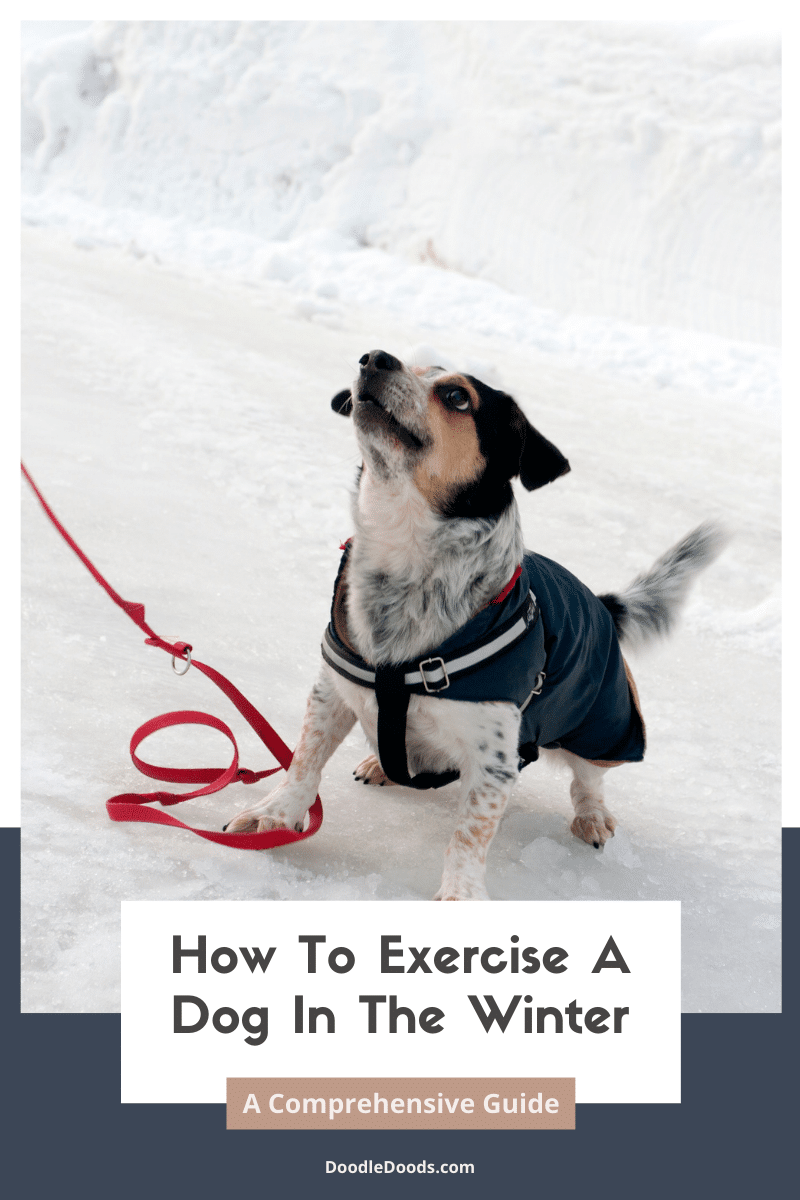Noises from your pet while they are sleeping can be cute to see during the daylight hours. However, at night they can quickly become a real nuisance – especially if they disturb your and your family’s slumber. If your dog is barking in their sleep, or whining or making other sounds at night, you may be wondering why this is happening and whether there is anything you need to do about it.
In most instances, this behavior is absolutely nothing to worry about. Sleep noises are a natural part of canine dreaming, just as sleep talking can be a feature of human dreaming. However, in some rare instances, nighttime sound emissions from your pooch could be a cause for concern. Here we will take a look at some of the common and not-quite-so-common reasons your pup might be barking in their sleep.
Table of Contents
- How Dogs Sleep
- Why Is Your Dog Barking In Their Sleep?
- Should You Wake Your Dog Up If They’re Barking In Their Sleep?
- What Should You Do When Your Dog Barks In Their Sleep?
- When Should You Worry About Your Dog Barking In Their Sleep?
- Dog Barking in Sleep: Frequently Asked Questions
How Dogs Sleep
Canine sleep patterns are pretty similar to human ones. They go through periods of deep sleep and times of lighter sleep when they are more susceptible to dreaming. When they first lie down, dogs pass through a relaxed wakefulness stage that lasts around five to ten minutes before progressing into a light sleep stage. Their heart rate slows down, and their body temperature drops.
After a while, your pup will pass into a deeper level of sleep known as non-REM (rapid eye movement) sleep. This is a vital stage where the body rests and repairs. However, it doesn’t remain in this state for long. In fact, during the night, your dog will cycle between non-REM and REM sleep in much the same way you do. With bigger pups, the intervals will be the same – around 90 minutes. Smaller dogs go through these stages a little quicker, around every 10 minutes or so.
Why Is Your Dog Barking In Their Sleep?
It is in the REM stages of sleep that vocalizations are more likely to occur. This is because that’s when dreaming happens. Breathing and heart rate quicken, and brain activity step up too. At this time, your dog will likely be reliving the things that happened to them during the day in much the way people do. They will dream about you, events that occurred, the walks they went on, the games they played…
While dreaming, your pet will be using all their senses. This is why you might spot eye movements beneath their lids, their ears flicking back and forth, their paws twitching. This is when they will also be most vocal, making the sounds they would during the day – barking, growling, whining, etc.
The amount of nightly noise your pup makes is generally just down to individual differences, as it is with people. Some will barely make a peep, while others may be super loud throughout the night. However, watch out for changes here because certain situations can really ramp this up, including:
Anxiety
If your dog feels insecure in their environment, whether because you’ve recently moved or something else has changed in your family situation, they may have more anxiety-related nightmares. This could cause them to be more vocal at night. You might also notice your pup whimpering, yipping, and more if you have changed their sleeping arrangement. This can particularly be the case if you have moved them further away from where your family sleeps provoking separation anxiety.
Loud Noises
Your pup’s guard dog instincts might also lie behind nighttime barking, especially if it’s in response to sudden and unexpected noises. This can be anything from a car alarm going off, to a door slamming somewhere, or a person walking noisily past the house. Your dog might take this cue that danger is present even if the noise isn’t sufficient to wake them from their slumber. This is absolutely normal and definitely not a cause for worry.
Medication
Medication can also impact sleep in many different ways. Sleep disturbances are often a common side effect of certain types. So if you have started your pet out on a new treatment plan or have increased their daily dosages (at your vet’s recommendation, obviously), you might want to look through the listed side effects or chat with your vet to see if this could be the issue.
Excitement
One of the very best reasons your pup might be happily howling away in the nighttime is because they are having super pleasant dreams of all the adventures they have been having recently. Alongside barking, they may also snort, grunt, lick, chew, move their legs as though they are running, flick their eyes, wag their tail, sniff, twitch their ears or move their head about. These are generally signs that they are busy having a marvelous time.
Pain
A more troublesome reason your pal might be making noises at night is that they are in pain. These will generally be the kinds of whine or yelps that they would make during the day if they are suffering the same. You might also notice that they tend to do this when they move, which could show you where the pain originates. As you might imagine, injury aside, this tends to be a bigger issue for aging pups suffering from achy joints.
Nightmares
Finally, another common reason your hound may be restless is that they are having nightmares. While you may be concerned about this, it’s just another normal part of sleep. If you notice your pet growling, showing their teeth, backing off, or lifting their coat, it might be that in their mind, they are busy fighting with another dog or warding off a human home invader.
Should You Wake Your Dog Up If They’re Barking In Their Sleep?
The issue with waking a dog while they are dreaming is that, as with people, this can be incredibly disorientating for them. At best, it might leave them feeling groggy and unable to get back to sleep, disturbing their sleep patterns and leaving them overtired the next day. At worst, they may become agitated and lash out, especially if they have been having a nightmare. For these reasons, many vets would suggest letting sleeping dogs lie, as the old saying goes, and figuring out a solution if need be, the next day.
What Should You Do When Your Dog Barks In Their Sleep?
Really, in most situations, you won’t need to do anything at all about your hound barking in their sleep. It’s not doing them any harm, even if it seems like they are in distress. Their nightmares are just that – they won’t harm them. As long as it doesn’t seem like they are in pain, which you should absolutely talk through with your vet, they really are okay.
However, if your dog’s nightly noise emissions are disturbing you, your family, or your neighbors, you might not really have a choice but to do something about them. Probably the simplest solution is to just move your fur-baby’s bed a little further away from sleepers so that their unsociable hours barking will be less likely to be heard.
A Few Simple Solutions
If this is not possible, then you are likely going to have to think a little more about what is underlying the noise. Never ever consider either punishing your pet for this behavior that really is beyond their control or slipping them any kind of sleep medication designed for humans. Despite having similar sleep patterns, human and canine systems are very different. You can do a lot of harm by giving your pup people medicine.
A good fail-safe is to increase the amount of exercise your pet does during the day. Boosting their walking and game habits will mean that when it comes to sleep time, they are more likely to be too tuckered out to act out their dreams. Another great thing to do is make your pooch’s sleep area cozy and relaxing with soothing music and smells. Lavender and chamomile work great for this.
If you suspect your pal’s sleep barking is linked to anxiety, it would definitely be good to give them a little more loving. This will help them feel more comfortable, happier, and more secure with their position within the household. Plus, it may seem counterproductive, but bringing your pet’s bed into your bedroom to allow them to sleep closer to you could help you all with getting a more restful night’s sleep.
With behavioral issues such as alerting to loud noises, you might consider making use of white noise in your pet’s sleeping area to block out these startling sounds that could cause your dog to bark. You could also look into boosting your pet’s omega 3 intake. Research has found that this useful supplement reduces cortisol, the stress hormone, and lowers the heart rate too. All this helps your pup remain calm throughout the night.
When Should You Worry About Your Dog Barking In Their Sleep?
While sleep barking is mostly harmless, in some instances, it could be a sign of something a little more serious. You only need to consider doing anything about nightly noise if you suspect that the behavior is linked to pain or real fear. The signs shouldn’t be too tough to spot – negative noises and actions over positive ones, for instance. So if you notice your pup getting louder at night, try to keep a careful eye on them.
You may notice that your dog is not actually asleep when barking or making other sounds. They might simply be trying to attract your attention and alert you to the fact that something is wrong. While insomnia is rare in dogs, it can be a symptom of another issue like arthritis which may be causing them pain when they lie down. This can be commonly seen in more elderly dogs but easily catered for with a more comfortable bed. One that is slightly elevated from the ground might make it easier for them to get in and out of too.
If you can’t see any clear reasons why your pet seems to be in distress at night, then you really should consult a vet. This is the only way to rule out injuries and other medical issues that could be preventing your pup from getting a restful night. Once you have done this, if the behavior still persists, then the cause may be psychological, in which case you might want to speak to a canine behavior expert. Chatting with a pro never hurts and might help you with getting the problem resolved once and for all.
Dog Barking in Sleep: Frequently Asked Questions
Are dogs happy when they bark in their sleep?
Dogs tend to vocalize in their sleep as a response to the dreams they are having. More often than not, they will be dreaming of pleasant and exciting things from their daily life. However, it might also be the case that they are feeling worried, anxious, or nervous about something, such as a change in their environment or situation. It shouldn’t be too tough to notice the difference between the two kinds of sounds.
Why does my dog bark when it’s sleeping?
Dogs bark in their sleep for a variety of reasons. Usually, they are just acting out their thoughts in the same way that people sometimes do. Nighttime noises are very rarely something to worry about. However, suppose you notice changes in your pup’s routine or sleeping patterns and behavior. In that case, it’s a good idea to consult a vet as there may be an underlying issue responsible for this.
How do I know if my dog is having a nightmare?
You can notice whether your pup is having pleasant or unpleasant dreams in much the same way that you can tell if they are happy or anxious in their waking hours. If they are yipping and paddling their legs, they are likely having happy dreams of chasing rabbits. On the other hand, if they are whimpering, crying, growling, or howling and either curling up or cowering away, chances are they are having a nightmare.
There are many reasons why your dog might be barking at night. If you are sure they are asleep, nighttime noises are likely related to dreaming. Anxiety and excitement are the top reasons your pup could be vocal and restless at this time.
If you are at all worried about this behavior, because it seems like your pup is unhappy, because it is disturbing your pet’s sleep or yours and your family’s, or if you notice significant changes, i.e., your dog never barked in their sleep before and suddenly it’s happening every night, it pays to speak to a pro. They can help you understand and resolve the issues that may underlie this bothersome behavior.
Dealing with sleep barking can be tricky, but with a bit of work and patience, it can be done. The benefits for you, your dog, and your family will be immense – you will all be able to enjoy plenty of nice, restful nights of sleep.
Learn How to Care for Your Doodle Puppy!

Perfect for first-time Doodle parents, get ALL your questions answered, including questions new Doodle parents don’t even think to ask.
Plus, get $700 worth of Bonus Materials for FREE, including:- Doodle Parenthood Community and Support Group ($190 value)
- Doodle Puppy Growth Tracker ($20 value)
- EMERGENCY Cheatsheet: When To Call The Vet Immediately ($50 value)
- HELP! Button ($145 value)
- And SO MUCH MORE!
The information on this page is for informational purposes only. It is not intended to be a substitute for qualified professional veterinary advice, diagnosis, or treatment. Always seek the advice of your veterinarian or other qualified animal health provider with any questions you may have.



